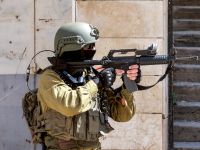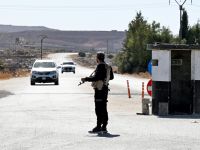The UAE said Wednesday all Arab states are opposed to a U.S. military strike on Iraq, but former officials and experts from the United States believe such an attack will be launched with the aim of ousting President Saddam Hussein.
Sheikh Hamdan bin Zayed Al Nahyan, UAE’s Minister of State for Foreign Affairs, dismissed statements by U.S. Vice President Dick Cheney that most Arab states are not opposed to a military action against Baghdad following his visit to the UAE and other regional states last week.
"The UAE stresses within an Arab consensus on the firm stand which opposes a military strike against any Arab country under any excuse," Sheikh Hamdan told the Arabic language daily Al Ittihad.
"Instead, there should be peaceful means to resolve any issue or conflict because the biggest and only loser of such strikes is the people."
Other Arab nations have expressed similar positions and warned a fresh U.S. offensive on Iraq would be disastrous to the region and world peace.
But U.S. officials have not stopped sending signals that the U.S. would carry out its threats and attack Iraq while former officials and experts believe such a strike is inevitable and would target Saddam himself.
Such fiery statements have not abated although Baghdad has given indications that it might let UN arms inspectors back into Iraq, a key Western demand.
"It is almost certain that the U.S. will launch a military campaign against the Saddam regime," said Dr George Gause, associate professor of political science at the U.S. University of Vermont. "Even more so because the circumstances under which this military campaign could be prevented are unlikely to materialize."
Dr Gause presented his views in a lecture at the Emirates Centre for Research and Studies about the "U.S. policy towards Iraq in the aftermath of September 11."
According to Gulf News, he conveyed the attack could be launched under the cover of destroying Iraq's scheme to rebuild its weapons of mass destruction. But its real target is toppling the Iraqi president and installing a new regime.
"Since September 11, it is clear that U.S. President George Bush has decided to make the unseating of Saddam Hussein a major foreign policy goal of the Administration. The question is not whether there will be a major American initiative in this area but rather when it will happen," he said.
"There does not appear to be, as yet, a clear American blueprint for how Saddam will be unseated but there is an unmistakable orientation toward direct, aggressive action against the Iraqi regime."
But Dr Gause said the U.S. Administration is facing hurdles in such an offensive, including the extent of the attack, support by the United Nations and regional countries, the military facilities needed in some regional states for such an offensive, and the type of regime that will replace Saddam.
"Yet this would most likely imply the deployment of ground troops for which support of other Gulf states, mainly Saudi Arabia, is needed," he said. (Albawaba.com)
© 2002 Al Bawaba (www.albawaba.com)







